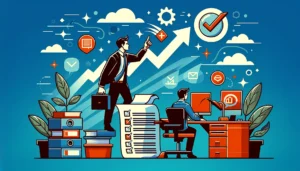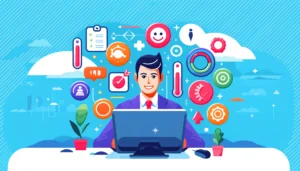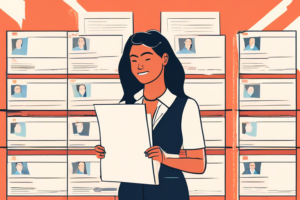Transforming talent: Interview with Julia Harvie-Liddel, BP
- 6 Min Read
HRD Connect sat down with Julia Harvie-Liddel, Group Head of Talent Acquisition at BP to find out more about the ever-changing world of talent acquisition.
- Author: Louron Pratt
- Date published: Jun 27, 2019
- Categories

Talent acquisition and development are constantly changing. Culture, technology, and benefits are all crucial aspects for business leaders to consider when managing and developing a workforce. To find out more about this ever-changing role, HRD Connect spoke with Julia Harvie-Liddel, Group Head of Talent Acquisition at BP to find out more about her role, and what it’s like to develop a global workforce.
As one of the world’s leading energy companies, BP provides its customers with light, heat and mobility, and has operations in 78 countries and over 73,000 employees around the world. Julia’s responsibilities include developing and overseeing the implementation of BP’s talent acquisition strategy, in service of the workforce capabilities required to deliver BP’s long-term strategy. This includes all recruitment at BP globally, from school leaver to boardroom level.
For a global business like BP, is culture a priority? How do you maintain the culture across different generations and then different countries?
At BP, our core values are incredibly important. When we interview people we always embed our assessment around those values, because somebody could be technically phenomenal but if they’re not going to fit into our culture, and the way we operate as an organization, then they wouldn’t be a good fit.
It’s a two-way process for us. It’s not just about taking the technical skills and the competencies but thinking about how people fit. We’re now hiring across five different generations; I’m hiring people who are teenagers, coming into the workplace for the first time, through to hiring people in their 80s. We span pretty much every generation in terms of how we attract, retain and develop our people. So, it’s crucial that everybody feels they can be successful, but the values and behaviours really anchor that – that’s what helps us.
What’s the most exciting aspect of companies like BP adopting a multi-generational workforce?
People find it very motivating to work at BP and we hear this feedback regularly. They see a lot of diversity, not just in terms of gender, race and religion, but also in multi-generation, in age, and people really enjoy that. We have lots of different ways that we bring the generations together and help people value what’s new. When I think about some of our graduates coming in, they will have some of the most interesting ideas. What we’re seeing is strong cross-pollination of learning from one another. It’s hugely encouraging, as well as beneficial for the business. It would be rare to go into any meeting environment at BP and find a group of people who were very homogenous, which is wonderful.
How have expectations changed in the role that talent acquisition plays at BP?
Even if I look over the last three, four years, the changes have been phenomenal around the candidate’s expectations. When you look in the HR space, we are very fortunate that a lot of vendors and suppliers invest heavily in technology in our sector, so talent acquisition has really evolved and improved as new technologies have come into play.
What are the biggest lessons to be learnt for HR professionals?
We continue to learn over time, but what we’ve seen at BP is that the people who can best tell you what they need are those who are receiving the service, whether they are external candidates or current employees.
What we’ve done over the course of time is incorporate more flexibility around our processes, to offer a menu of choices in our HR practices. It’s really interesting to see how some of the biases that you might hold about different generations, and what might be important to them, are contradicted when you speak to the individuals about it. We’ve learned to never assume. For example, when we examine our candidate journey to make things simpler and easier, some of our assumptions are often contradicted. We’re realizing that the voice of the customer, which is either the employee or the external candidate, is the best indicator of how we should offer the right HR support to different individuals.
What do you think are the main challenges arising from digital transformation and disruption?
We’ve recently completed a transformation programme at BP called HR Modernisation. As part of that programme, we have reassessed our approach to HR, especially given various emerging HR technologies. Now, we’re cloud-based, we can draw on market insights and analytics, and we can use artificial intelligence. It exciting that we’ve got all these new advantages.
However, as we were designing the new HR system, we saw that other major companies had developed a very modern, but quite standardized approach around how they use technology to take care of their employees, and how those employees experience the HR service offering.
But what we realised at BP is that we have different types of employees: some who still want to speak directly to a HR team member; others who want to send an email and have a quick response; or, those that are happy engaging with a chatbot. We need to offer a menu of options, and people need to use whichever service feels best for them and gives them the level of support that they need, at the time they need it.
When you look at the complexity of our operations, our locations and our time zones, there’s a real danger of designing HR technology, systems and processes around your biggest, most developed locations. Then, the further you travel from those locations, the less those systems and processes work culturally. So, that’s been a huge learning curve, understanding that one size just doesn’t fit all. And it may seem efficient for the entity, the organization, but the reality is the experience isn’t good for the end user.
What would you say is the most exciting aspect of HR that will happen in the future?
What I’m finding exciting is that a few years ago, if you worked for a business to consumer company, then they were already thinking about the employee and the candidate as a consumer. For other companies it has taken a bit more time to move to that way of thinking.
But with the increased levels of transparency, with Glassdoor and all the different insights that people can now access about employers, it means that HR and the candidates are more in tune with each other, with what the HR offering is, what the candidate needs and how to link that to value for the organisation. It’s much less of a them versus us situation, but rather all parties working in unison to achieve mutually beneficial results.









